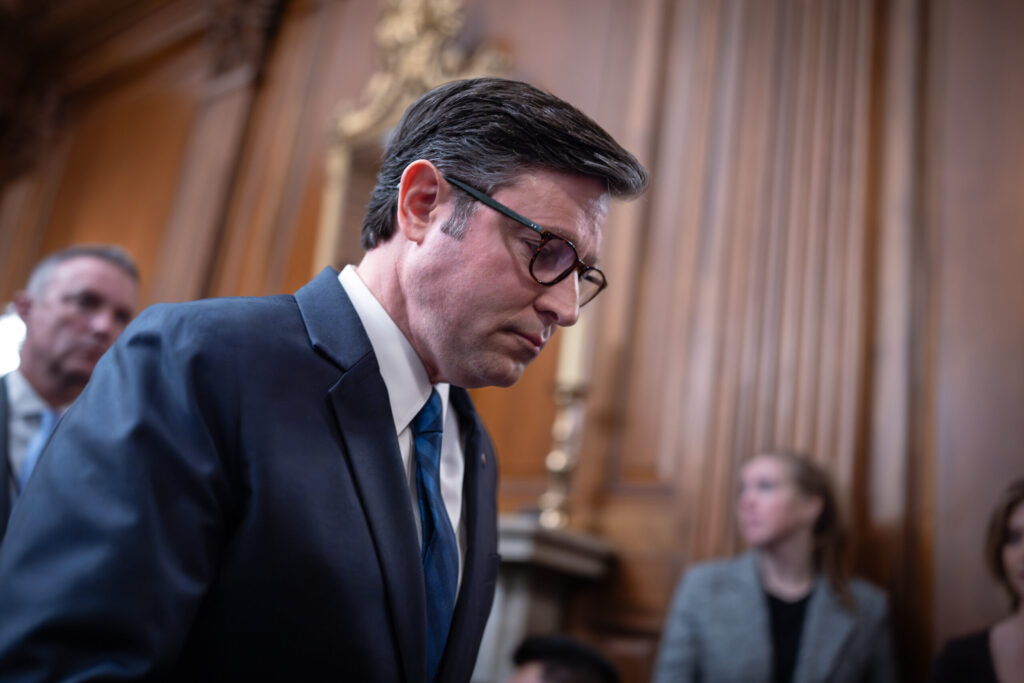Colorado Senate adds $725 million to $36.4 billion spending plan for next year

Colorado senators unwound all the changes House members made to the proposed state budget and then added $725 million in spending, a move that highlighted the political machinations in the legislature in an election year.
The revised budget still needs the full chamber’s vote, and, assuming the Senate approves the latest version, senators and representatives will need to reconcile their differences before sending a final spending plan to Gov. Jared Polis.
The fiercest debate on Wednesday centered on an amendment to add $503 million to the Department of Education’s budget. Under that plan, half of the money would pay for teacher pay increases.
That decision, assuming it stands, would pay down most of what’s left of the state’s decade-old debt to K-12 education.
By day’s end, the Senate had approved amendments totaling $725 million, most of in general fund dollars, to the budget package.
The state House last week approved a proposal to spend $36.4 billion, which funds policymakers’ priorities in the upcoming fiscal year.
The House modified that proposal to add $63.5 million in cash and general fund dollars but stripped out $1.5 million in expansion funding from the Office of Public Guardianship. Other amendments added funding for two agricultural programs, plus money tied to the reintroduction of wolves in northern Colorado.
The Senate Appropriations Committee, however, unwound all of changes the House approved.
The amendments offered in the Senate reflected not only lawmakers’ priorities but also political positioning with the primaries just around the corner.
Republicans pushed for – and Democrats, who controlled the majority, allowed – the amendment to add half a billion dollars in education spending to stand.
During the debate, Sen. Barbara Kirkmeyer, R-Brighton, pointed to a Democratic-backed law during the 2021 session to set up an educator pay-raise fund that didn’t include immediate funding from the legislature.
“Sounds like we do get involved in educator pay,” she said, adding Colorado teachers are among the lowest-paid in the nation.
Kirkmeyer, who is running for the June 28 Republican primary in the 8th Congressional District, was referring to longstanding arguments by legislators that local school boards – not General Assembly – determine teacher pay.
Senate Minority Leader Sen. Chris Holbert, R-Douglas County, argued that the time has come to repay what’s called the budget stabilization factor, “an IOU” to K-12 education that started in 2012 and reached a high of more than $1.2 billion two years ago. The original 2022-23 budget proposal would pay that debt down by $182 million to $321 million.
“Folks in my party are sometimes accused of not caring enough about teachers or teacher pay. This is evidence that’s not true,” Holbert said.
Sens. Bob Rankin, R-Carbondale and Rachel Zenzinger, D-Arvada, both members of the Joint Budget Committee, pushed back.
Rankin told the Senate the Joint Budget Committee has a plan to eliminate the budget stabilization factor.
“We’re putting aside $840 million in the state education fund,” he said, adding that money will form the basis for the School Finance Act, and then pay off the state debt in the next year or two.
Zenzinger, however, said the amendment is based on one-time money that will create a budget deficit in the next year.
“You can’t increase teacher salaries on one-time money,” she said.
The amendment passed on a voice vote, which many see as a political tap dance, given the difficulty of being seen as voting against more money for education. It’s unlikely the amendment will survive and make it to Polis’ desk.
All told, senators offered 37 amendments, some of which mirrored House changes to the budget as introduced. They included funding additions to the Tony Grampsas Youth Services Program, more money for an eviction legal defense fund and a pay hike for state troopers.
Senators did not make changes to the budget for the Office of Public Guardianship, which is seeking $1.5 million to add two judicial districts to the program.
In addition to the $503 million in education funding, senators added $200,000 to the Department of Agriculture’s budget for its rural mental health program.
Sen. Kerry Donovan, D-Eagle, told her colleagues that often the prevailing attitude in the agriculture industry is to “be tough.” But suicide, she said, is far too common among farmers and ranchers, especially for those struggling financially.
Sen. Jerry Sonnenberg, R-Sterling, said agricultural producers in rural Colorado have a higher rate of suicide than any other part of the state.
He said the industry is “in dire straits” because of stress, including from high costs of fuel.
Another amendment came from Sen. Dennis Hisey, R-Colorado Springs, who sought $100,000 to study small modular nuclear reactors.
Sen. Chris Hansen, D-Denver, a Joint Budget Committee member, said the technology holds a lot of promise but noted that the most recent nuclear project in the country is seven years late and over budget. The cost of electricity from those units, located in Georgia, will be $110 per megawatt hour – not exactly the best choice when wind and solar are at $20 per megawatt hour, said Hansen, who advocated for its defeat.
Republicans also tried but failed to pay off, or pay down, the red ink in the Unemployment Insurance Trust Fund, with two amendments from Sen. Rob Woodward, R-Loveland.
The last amendment of the day, which added $141 million in cash funds to pay for nine capital projects, also passed. The bulk of the funding for the five higher education projects will mostly come from the institutions themselves.
The Senate plans to vote on the Long Appropriations Bill and most of its 14 orbitals, which are intended to help balance the budget, on Thursday.
The long bill will then head back to the Joint Budget Committee, which will act as a conference committee and figure out which amendments will remain on the budget.














